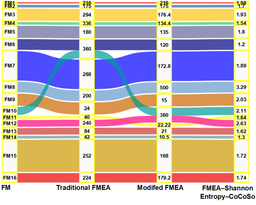Bridging Dental Education and Technology
Published in General & Internal Medicine and Education
When we embarked on our study, we were driven by a simple yet ambitious question: Can mobile applications revolutionize dental education?
The journey began in the bustling classrooms of Shahid Beheshti University, where dental students were grappling with the intricacies of population oral health needs assessment. This essential subject, part of their community oral health curriculum, posed a unique challenge—it required not only theoretical understanding but also practical application in assessing oral health indicators among diverse populations.
The traditional approach to teaching this subject relied on textbooks, translations, and peer collaboration. While effective, we believed there was room for innovation. We envisioned a tool that combined convenience, interactivity, and modern technology—a mobile app tailored for teaching oral health needs assessment. Our goal was to see whether this tool could bridge the gap between theoretical knowledge and practical application.
Developing the app was an exciting process, requiring collaboration across disciplines. Utilizing Flutter for mobile development and integrating it with a robust backend built with C# and SQL Server, we ensured compatibility across platforms and ease of use for students. The app included translations, interactive forms, and digital tools to streamline the learning process.
Once the app was ready, we implemented a comparative study. The intervention group used the app, while the control group followed traditional self-learning methods. Both groups tackled the same material—WHO’s "Oral Health Surveys: Basic Methods." We assessed their knowledge acquisition, attitudes toward mobile learning, and practical skills.
The findings were enlightening and humbling. While students expressed enthusiasm for mobile learning and recognized its potential, the app did not outperform traditional methods in knowledge retention or practical skill acquisition. This raised important questions: Was the app content too static? Did it lack interactive features essential for engagement? Or perhaps, was it the need for consistent feedback that limited its impact?
What stood out, however, was the students' overwhelming readiness to embrace technology. Their extensive use of smartphones and positive attitudes toward mobile learning were promising indicators of a future where digital tools could play a significant role in education.
Reflecting on this experience, we realized that innovation in education isn't about replacing traditional methods but enhancing them. The study has laid the groundwork for further exploration. Our next steps include integrating interactive quizzes, real-life scenarios, and adaptive learning algorithms into the app. By combining these features with insights from frameworks like the Kirkpatrick model, we aim to create a more engaging and effective learning tool.
This journey has been a testament to the iterative nature of research. It reaffirmed our belief in the potential of technology while highlighting the need for continuous refinement. We hope our work inspires others in dental education to innovate, experiment, and push the boundaries of traditional teaching methods.
To our readers: What innovative tools have you encountered in education? How can we, as educators and researchers, better harness technology to serve our students? We’d love to hear your thoughts!
Follow the Topic
-
BDJ Open

This is an international, peer-reviewed, open-access, online-only journal publishing dental and oral health research from all disciplines. The journal is owned by the British Dental Association (BDA) and is the sister journal of the British Dental Journal.






Please sign in or register for FREE
If you are a registered user on Research Communities by Springer Nature, please sign in